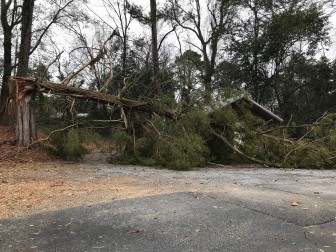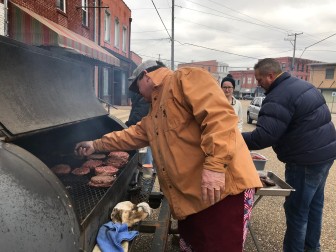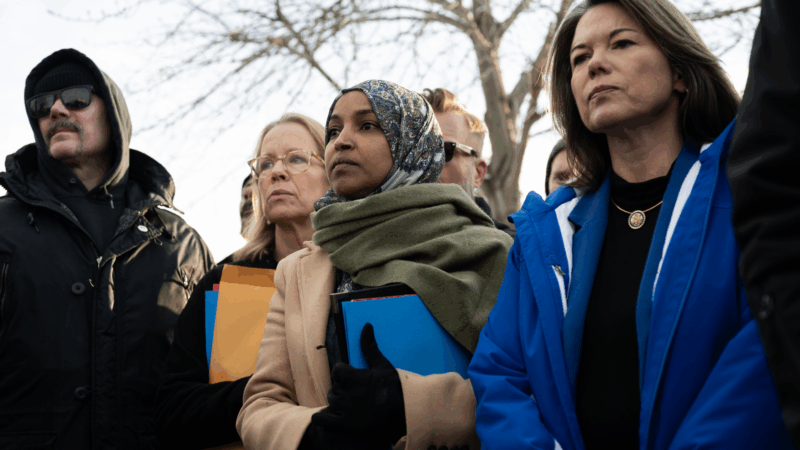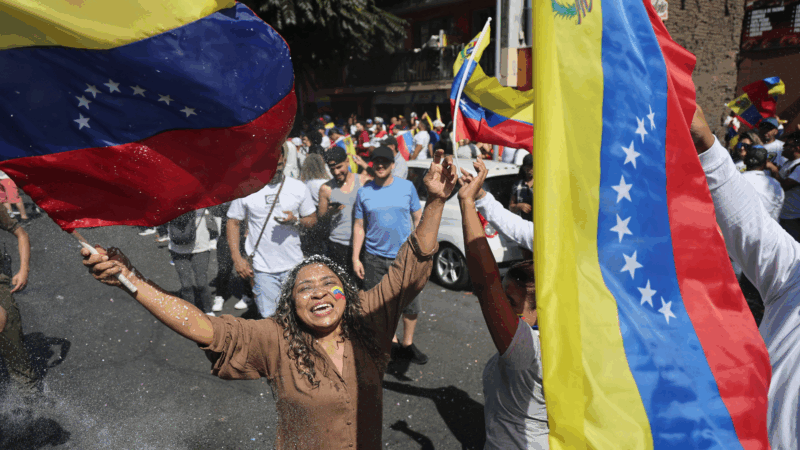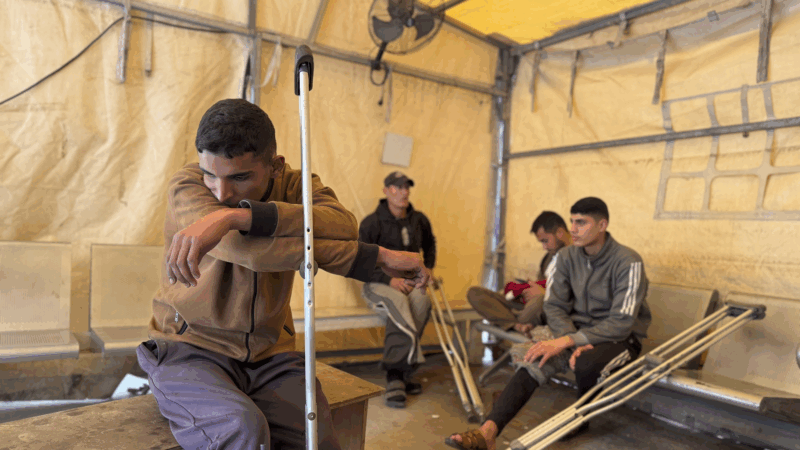After the Destruction, Wetumpka Begins to Recover
Wetumpka began what will likely be a long road to recovery on Sunday. It was one day after a powerful tornado ripped through the town, causing significant damage to a number of buildings and homes. Emergency responders say so far there have been only a handful of reported injuries. Residents were grateful, as dozens of volunteers and neighbors spent all day helping one another.
Bipin Kumar, a doctor in Wetumpka, has been there for decades. A few hours after the tornado hit, he went to check on his private practice on Highway 14, but huge trees blocked the road.
“It was a total mess. I could not even walk,” he said. “I had to park my car about at least two or three blocks away and then walk because the building was totally inaccessible.”
Several trees fell and punched big holes through his roof. Another roof – a metal one – lies curled up on his property. It blew over from somewhere; he’s not sure where.
Still, Kumar says, it could have been worse. It could have been a weekday and there could have been patients inside. Kumar was also grateful for the outpouring of support from friends and neighbors.
Elmore County District Judge Patrick Pinkston was among more than a dozen people who bundled up from the cold Sunday morning and set to work on Bipin’s office, which looks like a house. “Primarily we’ve been removing trees off of roofs. We’ve been cutting and removing slack,” Pinkston says. “Lot of chainsaw work, lot of hauling work.”
John De Block, a meteorologist with the National Weather Service in Birmingham, worked Sunday — without pay because of the federal government shutdown — to survey the damage all over Wetumpka.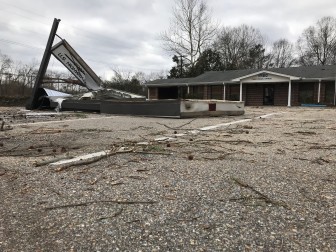
Weather officials say the Wetumpka tornado had estimated wind speeds up to 135 mph. Many trees just snapped. There have been only a handful of reported injuries so far. De Block says that’s in large part because weather officials issued a tornado watch five hours before the storm hit, so residents had ample time to go stay with relatives or take shelter in their homes.
He says it’s unclear how long before the town gets back on its feet, “but it’s a significant amount of damage. It’s gonna take quite awhile to recover from this.”
The storm destroyed two historic churches downtown, the senior center and part of the police department. The high school opened as a shelter. Many lost their homes and thousands lost power.
Volunteers there and at area churches served up hot meals. Some of that food came from The Coosa Cleaver in downtown Wetumpka. Workers grilled burgers outside the restaurant and shuttled them out to hungry residents and first responders.
Others offered up hot soup, bottled water, and coffee. They say it’s the least could do to help their neighbors begin to pick up the pieces.
America’s top figure skaters dazzled St. Louis. I left with a new love for the sport.
The U.S. Figure Skating National Championships brought the who's who of the sport to St. Louis. St. Louis Public Radio Visuals Editor Brian Munoz left a new fan of the Olympic sport.
DHS restricts congressional visits to ICE facilities in Minneapolis with new policy
A memo from Homeland Security Secretary Kristi Noem, obtained by NPR, instructs her staff that visits should be requested at least seven days in advance.
Historic upset in English soccer’s FA Cup as Macclesfield beat holders Crystal Palace
The result marks the first time in 117 years that a side from outside the major national leagues has eliminated the reigning FA Cup holders.
Venezuela’s exiles in Chile caught between hope and uncertainty
Initial joy among Venezuela's diaspora in Chile has given way to caution, as questions grow over what Maduro's capture means for the country — and for those who fled it.
Sunday Puzzle: Pet theory
NPR's Sacha Pfeiffer plays the puzzle with KAMW listener Daniel Abramson of Albuquerque, N.M, and Weekend Edition Puzzlemaster Will Shortz.
Inside a Gaza medical clinic at risk of shutting down after an Israeli ban
A recent Israeli decision to bar Doctors Without Borders and other aid groups means international staff and aid can no longer enter Gaza or the West Bank. Local staff must rely on dwindling supplies and no international expertise.

